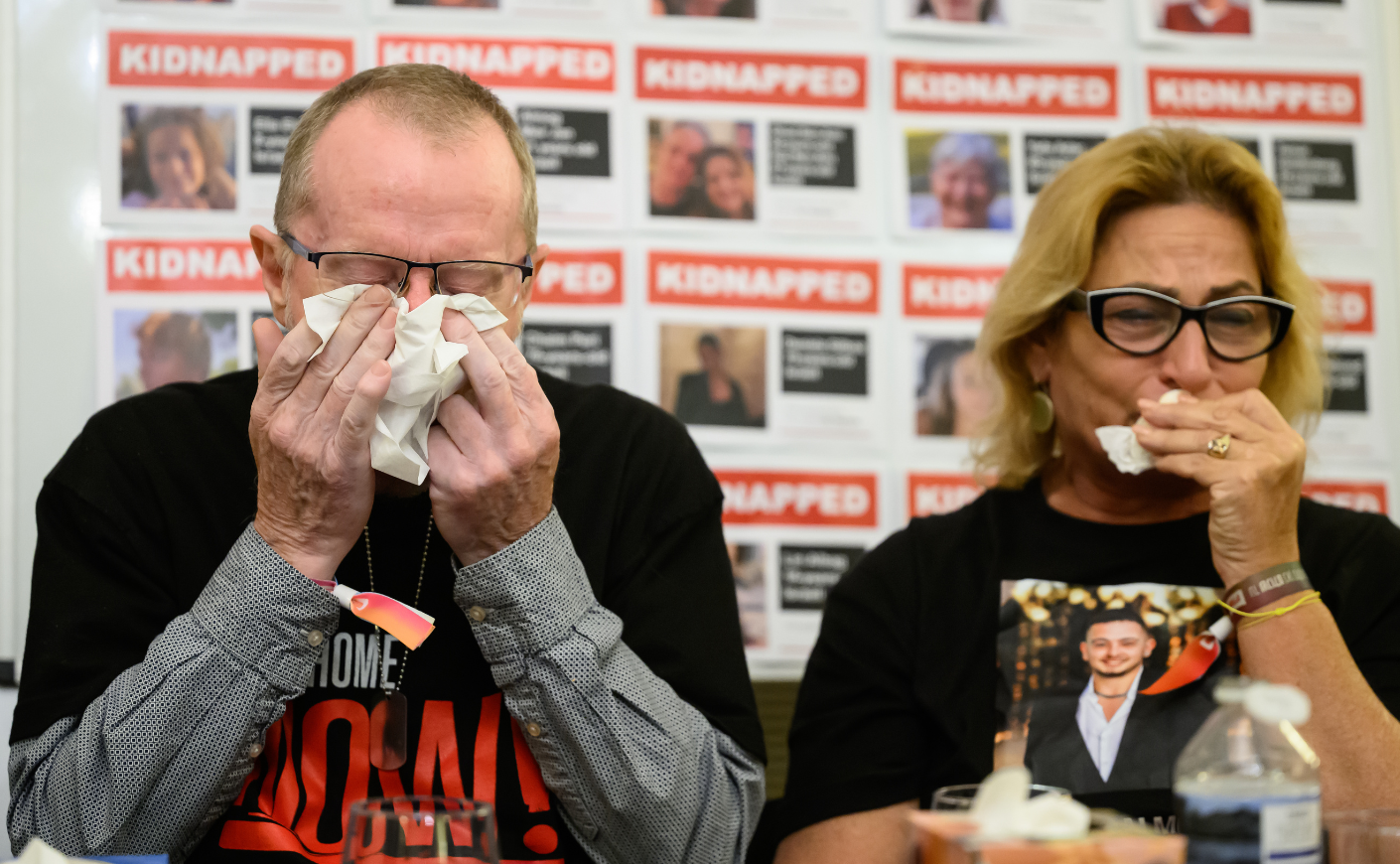Dr. Ofrit Shapira-Berman is a psychoanalyst and a professor at Hebrew University in Jerusalem. She's been working very closely with the families of those missing and killed in Israel on Oct. 7, and we wanted to talk to her about how the returning hostages are doing, what's being done to help the families with this sort of reintroduction period, and how the healing process is unfolding.
Stay tuned for more of our conversation soon, but for now, here are a few excerpts for a preview of what's to come.
Katie Couric: Can you start by telling us your role during this whole ordeal since Oct. 7th?
Dr. Ofrit Shapira-Berman: I’m heading an organization that's called Frontline Med (FLM). And we are an organization of about 1,700 physicians and about 500 psychoanalysts. We actually existed before Oct. 7, but on Oct. 7, just about two hours after it all began, we immediately understood that we had to join all of our strengths. On Sunday morning, I recruited about five of Israel's psychoanalytic institutes, and ever since then, we’ve gotten requests from people all over the country that need help, some of whom just cannot get help from the state. And we are giving them a psychoanalyst to either support them or take them into therapy for as long as they need.
In other words, you're dealing with a lot of people who have been traumatized psychologically, and you're trying to perform triage on so many people.
We have about 9 million people who are traumatized, but of course not all of them need help now. And some of them, even if they need help, they'll have to wait because we don't have the resources. So we are actually treating basically the people who have been directly affected by Oct. 7. And that means people who have been wounded, whose family has been slaughtered in front of their eyes.
What are you hearing about the circumstances under which the hostages were held?
It’s all very secretive. There are very few details that are being released, and so they're actually covering all the possibilities. They were underground and on the ground. They were being moved away from one place to another. Some of them were held together, but not all of them. And over the last two weeks, they had their food decreased. So they didn't have much to eat. They basically ate rice and some pita and that's it. So they all lost weight. They're all quite weak. They're all being kept in the hospital, which means that they are not physically fit to be released home. But overall, these are not the wounded people. We do know that some of the hostages are wounded quite badly.
I saw that Emily Hand, Thomas Hand's daughter who turned 9 last Friday, was released. It was obviously an incredibly moving moment, but tell me some of the challenges someone like Emily and her father will face in terms of getting back to some semblance of normalcy.
I do think that the first few days, and perhaps even more than the first few days, will be probably very, very happy. It will take time, I think, before the trauma will start to surface, but it will eventually, and it won't take very long. These children have not only been taken hostage, they have witnessed the most horrible atrocities. For example, Emily’s stepmother was murdered. So once she got back to Israel, they had to tell her [that she] was murdered. She was in captivity and probably had no idea what happened to her father. She's coming back and there is no home to come back to because the kibbutz is all ruined. It's all burned and destroyed.
What are some of the psychological challenges that these families will face because of the trauma they've endured? I guess it's highly individualized, but can you tell us what some of the common threads will be among many of these people?
People who say that they know what's going to happen are probably not really therapists. I have been treating people who've been sexually abused as children or who have experienced other kinds of traumas, and very often it takes years and years of therapy for them to live a full life. To function is relatively easy. People function, they get up in the morning, they go to work. But in terms of being able to have a full mental life or to be happy, to be able to love other people, to feel secure, to trust other people, it's probably going to take a generation or two. I mean, we are still treating people who are labeled as third generation to Holocaust survivors, so it's not the same. But I expect that we are going to have to treat the children of those people as well.
Lots of healing is going to need to happen for some of these families. They're lucky to have people like you helping them.
I feel lucky that they allow me to do that. I feel very blessed. I think it's so difficult for them to have all these new people enter their life, so I'm very grateful. They're very, very courageous people and profoundly, profoundly sad and terrified.









